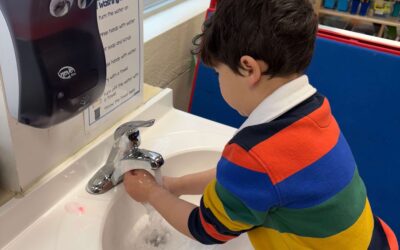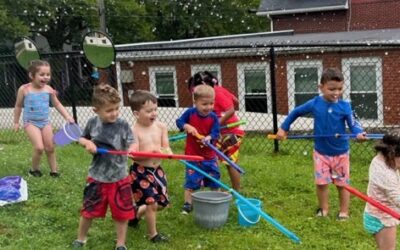Creating a Literacy-Rich Home: Simple ways to foster a love of reading from an early age
As early childhood educators, we know that a love of reading starts at home. Children who are surrounded by books and language from an early age are more likely to develop strong literacy skills and a lifelong passion for learning. But creating a “literacy-rich” home might sound intimidating. The good news is, it doesn’t have to be complicated or expensive! Here are a few simple ideas to get you started.
- Make Books Accessible
- Create a cozy reading nook: Designate a special corner or area in your home where your child can curl up with a book. Include soft pillows, blankets, and good lighting.
- Keep books within reach: Have bookshelves or baskets filled with books at your child’s eye level. Rotate the selection regularly to keep things interesting.
- Bring books on the go: Keep a few books in your diaper bag or car so you always have something to read when you’re out and about.
- Make Reading a Daily Routine
- Start early: Even babies enjoy looking at pictures and hearing your voice. Read to your child every day, even if it’s just for a few minutes.
- Bedtime stories: Make reading a part of your child’s bedtime routine. It’s a great way to wind down and bond before sleep.
- Let your child choose: Allow your child to select the books they want to read. This helps them feel in control and fosters a sense of ownership.
- Go Beyond Books
- Talk, talk, talk: Engage your child in conversation throughout the day. Use descriptive language and ask open-ended questions.
- Sing songs and rhymes: Nursery rhymes and songs are a fun way to introduce new words and sounds.
- Point out words in the world: When you’re out and about, point out signs, labels, and other words in your environment.
- Visit the library: Make regular trips to your local library. It’s a great way to access a wide variety of books and participate in story times or other literacy events.
- Be a Reading Role Model
- Let your child see you reading: Children learn by watching the adults in their lives. If they see you reading for pleasure, they’re more likely to want to read themselves.
- Talk about what you’re reading: Share your favorite books and authors with your child.
- Make reading fun: The most important thing is to make reading an enjoyable experience for your child. Don’t pressure them to read or sound out words if they’re not ready. Just relax, have fun, and let the magic of stories unfold.
- Get Involved! At The Village and The Rutledge Institute, we have parents and grandparents volunteer as “Mystery Readers” in our classroom, reading one or two children’s books in a few classrooms, including their child’s classroom. We understand that not everyone can take the time, but all are welcome!
Remember, the goal is to create a home where reading is a natural and enjoyable part of everyday life. By taking just a few small steps you can foster a love of reading that will last a lifetime!
























